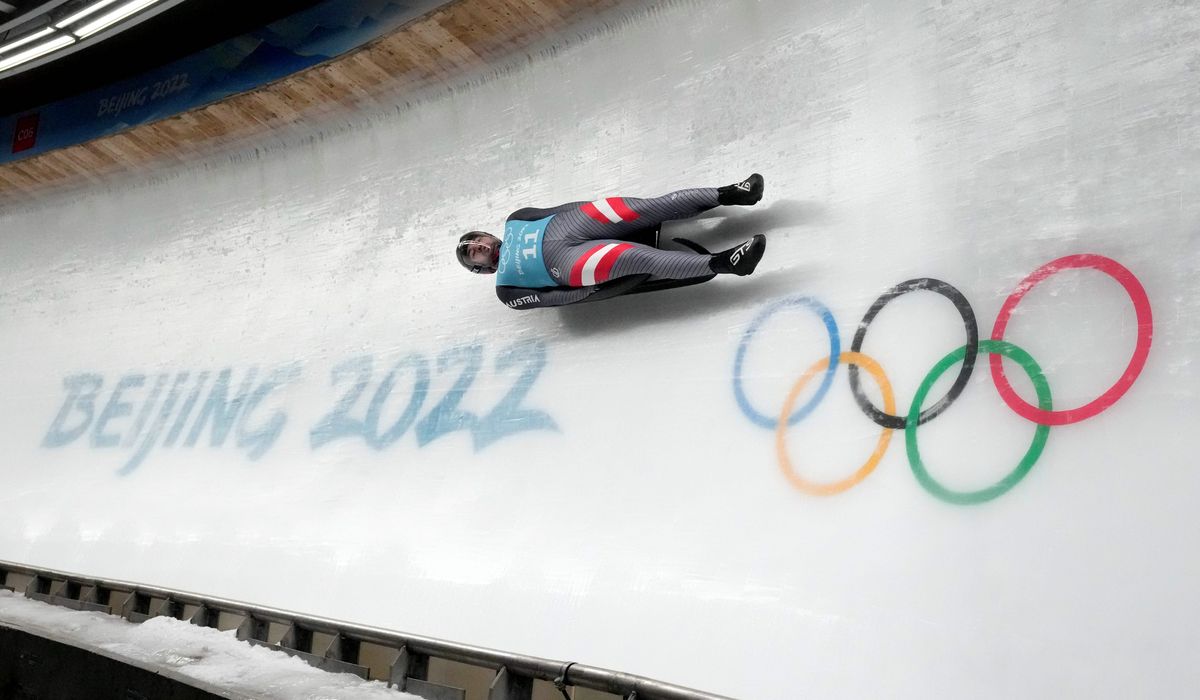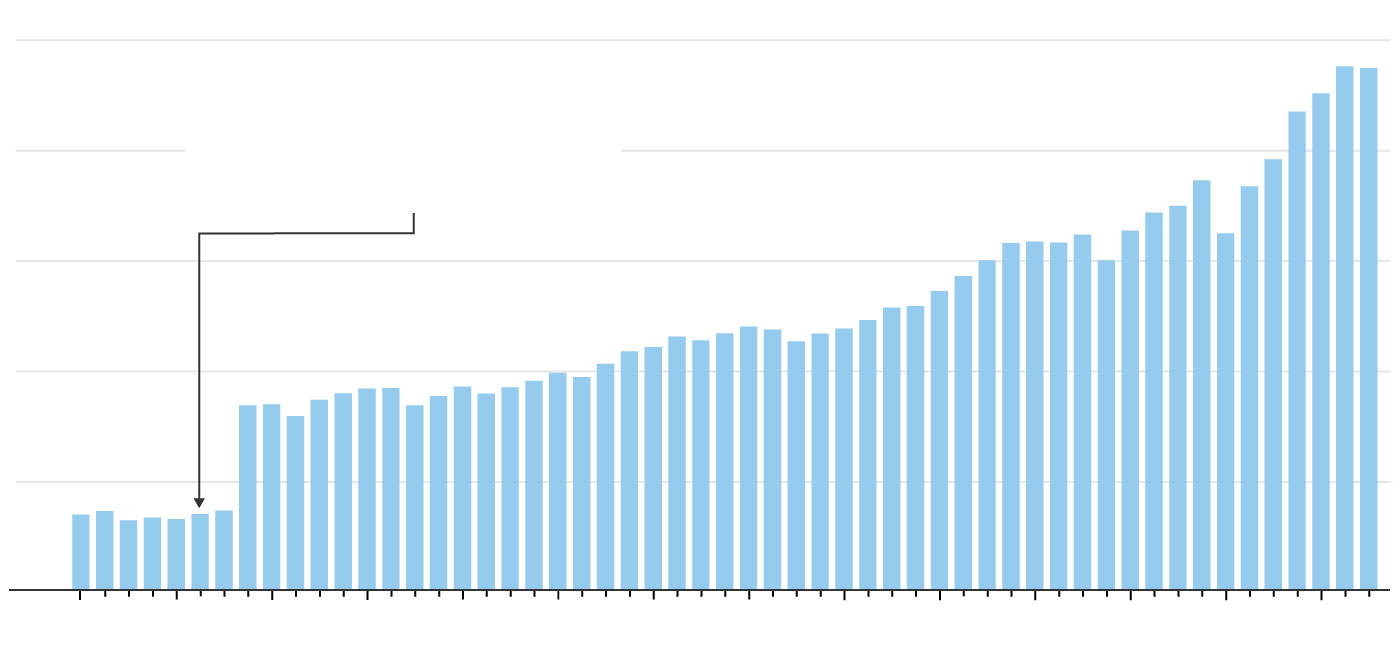
China scored a public-relations coup with the 2008 Summer Olympics as the newly prosperous nation strutted its stuff on the global stage. But the 2022 Winter Games that begin Friday are looking more like a marketing misstep for an aggressive global power that is getting hammered over human rights abuses and public health blunders.
Calls to snub what critics brand the “genocide games” have all but overwhelmed Beijing’s feel-good narrative as global audiences prepare to tune in for Friday’s opening ceremony.
The political backlash, including a diplomatic boycott and pressure on corporate sponsors, threatens to overshadow nearly 3,000 athletes as they enter an isolation bubble surrounded by concerns over pandemic safety, free speech and even potential arrest.
In short, these Olympics, like the delayed Tokyo Games six months ago, are fraught with as much tension and angst as they are with anticipation for memorable athletic performances. So … is anyone excited?
“It’s a very different situation,” said James Millward, a Georgetown University professor and historian who specializes in Chinese affairs. “China has been very aggressive in these territories that it controls, implementing these draconian measures and atrocities. And the world is taking notice of that. … There are reputational costs that China is suffering for this behavior.”
Instead of improving its human rights record after 2008, China has added to international concerns with crackdowns on free speech in Hong Kong and Tibet. The State Department last year condemned the oppression of the predominantly Muslim Uyghur minority in Xinjiang as a genocide.
“The world must heed the lessons of the Beijing 2008 Games, when Chinese government promises of human rights improvements never materialized,” said a statement by Alkan Akad, Amnesty International’s Chinese researcher. “The Beijing Winter Olympics must not be allowed to pass as a mere sportswashing opportunity for the Chinese authorities, and the international community must not become complicit in a propaganda exercise.”
Boston Celtics center Enes Kanter Freedom has become a leading boycott advocate and defender of the more than 1 million Uyghur people reportedly held in what China calls anti-terrorism “reeducation centers.” Mr. Freedom and others decry the sites as forced-labor concentration camps.
“The Chinese Communist Party does not represent the Olympic core values of excellence, of respect and of friendship. Everybody knows they’re a brutal dictatorship and they engage in censorship, they threaten freedoms, they don’t respect human rights,” Mr. Freedom said on Fox News. “While we are talking right now, there’s a genocide happening. So I call it the medal of shame.”
The boycott cries intensified after the disappearance of Chinese tennis player Peng Shuai after she said in a Nov. 2 social media post that a high-ranking party official had sexually assaulted her.
International Olympic Committee President Thomas Bach said in a Nov. 21 statement that he had spoken with Peng by video chat and she was “doing fine.” Human Rights Watch said his reassurance attempt was inadequate.
The boycott uproar gave China a public relations black eye without dislodging the Games. Corporations under intense pressure to pull their sponsorships are brazening it out. Some say the Olympics shouldn’t be politicized.
Instead, countries have resorted to diplomatic boycotts. The gesture precludes governments from sending any high-ranking officials to attend the Games. The United States was the first to impose a boycott. Canada, the United Kingdom, Lithuania, Denmark, the Netherlands and Australia joined the cause.
French President Emmanuel Macron called the protest “insignificant” and said in December that the Olympics should not be politicized. France is set to host the Summer Games in 2024.
Mr. Millward said a diplomatic boycott sends a message without punishing athletes who have worked years to achieve their dreams.
“It can still be expressed that ‘This is not business as usual,’” he said. “The leaders are not going to go sit there and wave at the camera as if nothing is going on. That point can be made without prohibiting athletes from going.”
Even with the political tension, there are games to be played and medals to be won in an atmosphere that lacks the traditional Olympics buzz.
Citing concerns over COVID-19, NBC announced last month that it would not send its broadcasters to Beijing. They will call events from the network’s Connecticut studios instead.
China decided to forgo selling tickets to the general public to “ensure the safety of all participants and spectators.”
Instead, organizers said, they are inviting groups of spectators to attend the events. The capacity limits aren’t publicly known, and Olympic guidelines suggest that those in attendance clap rather cheer. Fans weren’t permitted to attend the Tokyo Games.
Some of the measures to prevent the spread of the virus appear to be more stringent than those in Tokyo. Officials have introduced a “closed-loop” system to prevent athletes and other participants from making contact with the general population. They will be hemmed in by chicken wire and sheet metal at each site, according to NPR, and will be transported from one event to another.
China does not require vaccination, but anyone unvaccinated must quarantine for 21 days in the country before they are allowed access to the bubble. Every day during the Games, athletes must test for virus infection no matter their vaccination status.
If athletes test positive, they must isolate until they can register two negative tests in 24 hours. CNN reported that symptomatic people will be taken to a designated hospital for treatment. Those without symptoms must go to an “isolation facility” outside the bubble.
The omicron variant is far from the only worry. Team USA reportedly urged athletes to use disposable computers and burner phones because of concerns about Chinese cybersurveillance.
An analysis released Jan. 18 by the University of Toronto’s Citizen Lab found that the MY2022 app required for Olympic athletes has security holes that make personal information vulnerable to surveillance.
The app also can block 2,442 “politically sensitive” words, including “Tiananmen,” “The Holy Quran,” “Dalai Lama” and the names of Chinese government leaders.
The International Olympic Committee bans protests during competition and medal ceremonies, but China has broached the possibility of arrest or jail for athletes who make statements “against the Olympic spirit.” Yang Shu, the deputy director general of international relations for the Beijing Organizing Committee, warned that such violations, “especially against Chinese law and regulations,” would be “subject to certain punishment.”
Human Rights Watch senior researcher Yaqiu Wang told The Washington Times that Peng’s treatment serves as a reminder of what can happen to athletes if they speak out against the Chinese government.
“You should self-censor just to be safe,” she said.
Two-time U.S. Winter Olympian Noah Hoffman echoed that sentiment. He urged athletes last week to “stay silent until they get home” because speaking out is “not worth it.”
“This has been a huge distraction for them from their sport, and it makes them pawns in this geopolitical fight that, you know, pits human rights against the power of China,” Mr. Hoffman said on Fox News. “It’s just a terrible place for athletes to be.”
Rep. Michael T. McCaul, Texas Republican, said Monday at a Heritage Foundation event, “The Wrong Choice: China and the 2022 Winter Olympics,” that the State Department needs to ensure that U.S. athletes are protected if they “speak out against the CCP’s atrocities.”
“American athletes who have ever spoken out against the CPP or speak out against the CCP while in the country could face arrest and up to life in prison,” Mr. McCaul said. “We cannot turn a blind eye to the CCP without properly preparing our athletes for the dystopian reality of China.”
Still, he said, he supports U.S. participation and the diplomatic boycott as “a way to stand up for American values without punishing our athletes.” He drew a comparison to the 1936 Berlin Games, where Black U.S. track athlete Jesse Owens won four gold medals.
“Just as Jesse Owens showed Adolf Hitler that the Aryan Nation was not superior, I know our athletes will show the Chinese that we’re going to take home the gold,” Mr. McCaul said.








